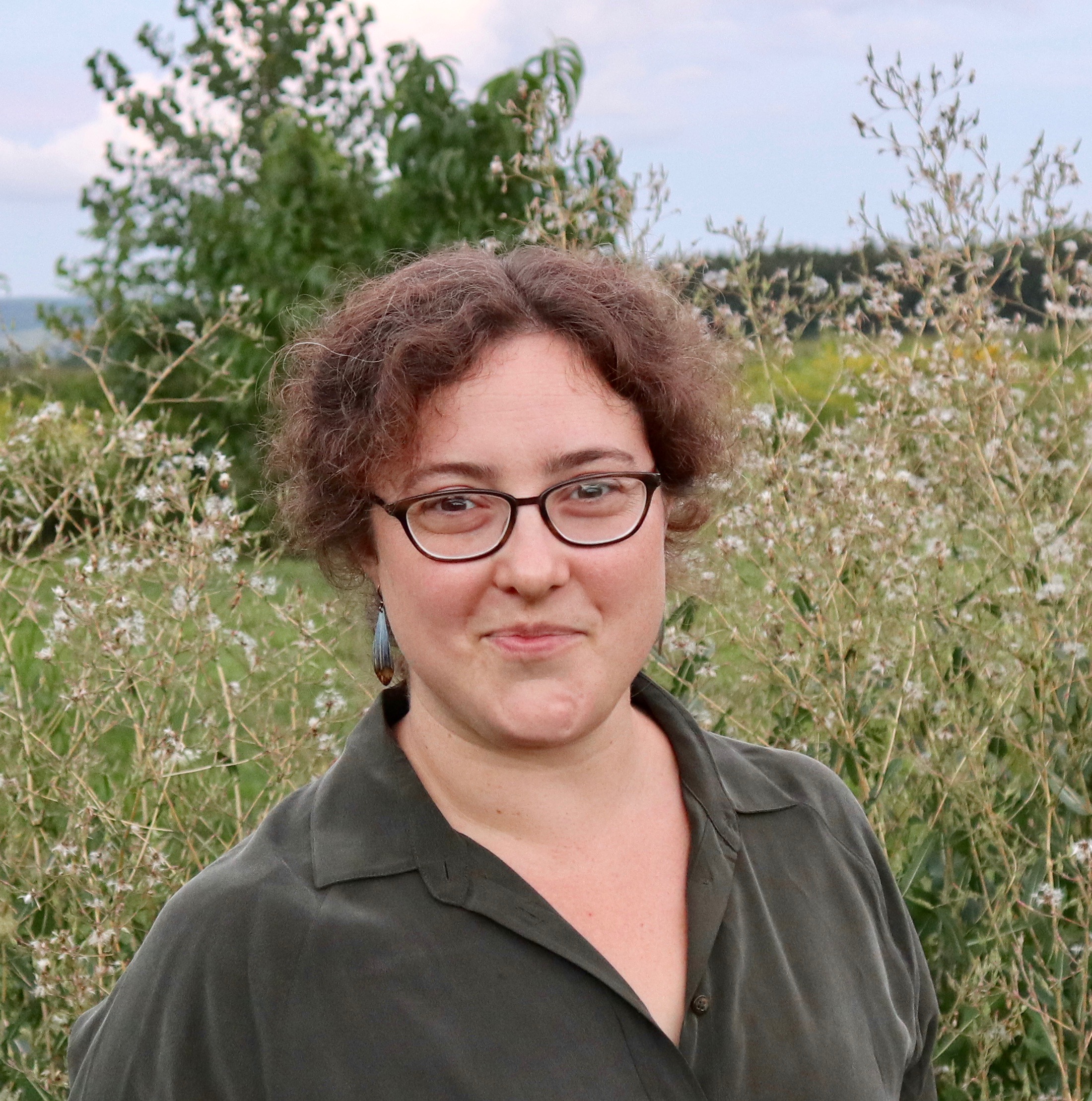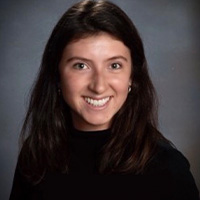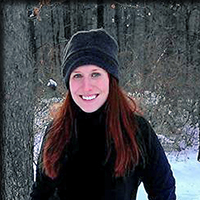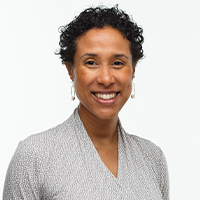Faculty Profile
Sharon Moran
Associate Professor

256 Marshall Hall
Affiliations
- Faculty Affiliate, Program for the Advancement of Research on Conflict and Collaboration (PARCC), Maxwell School of Citizenship, Syracuse University
- Research Associate Professor, Department of Religion, Syracuse University
- Affiliated Faculty, Department of Geography, The Maxwell School of Citizenship and Public Affairs, Syracuse University
- Partner Faculty, Certificate of Advanced Study in Sustainable Enterprise, Syracuse University and SUNY ESF
Education
- Ph.D., Geography, Clark University, 2000
- M.S., Political Science and Public Policy, Massachusetts Institute of Technology
- B.A., Chemistry, Boston University
Research Interests
- Political ecology; environment-society relations
- ‘Green’ and innovative technologies; sustainable enterprise
- Human dimensions of water/ wastewater issues; policy and regulation
- Post-communist countries - environmental issues
- Qualitative research methods
Graduate Students
Note: Prof. Moran’s graduate students are enrolled in either ESF's (1) Dept. of Environmental Studies OR
(2) GPES (Graduate Program in Environmental Sciences).
Current Graduate Advisees
 Kweku Attafuah-Wadee
Kweku Attafuah-Wadee
kattafua@syr.edu
- Degree Sought: PHD
- Graduate Advisor(s): Moran
- Area of Study: Environmental Science
LinkedIn Profile
Web Link
Graduate Research Topic
What are the relationships between circular economy interventions relating to material substitution and different economic theories in North America? A case study for the manufacturing sectors in the US and Canada.
Favorite Quote - Wilfred Owen
My friend, you would not tell with such high zest, To children ardent for some desperate glory, The old Lie: Dulce et decorum est, Pro patria mori.
 Sophie Brown
Sophie Brown
sebrown@syr.edu
- Degree Sought: PHD
- Graduate Advisor(s): Moran
- Area of Study: ESC Environmental and Community Land Planning
Personal Statement
Sophie Brown is a PhD student in the division of Environmental Science at SUNY ESF. She holds a Masters degree in Environmental Science from SUNY ESF, a Certificate in Environmental Leadership from SUNY ESF, a B.A. in Environmental Communications from Bard College, and a Certificate in Iroquois Linguistics from Syracuse University. She grew up in and resides on unceded Gayogo̱hó:nǫ territory near what in English is called Ithaca, New York. Her work as a researcher centers around indigenous language restoration, decolonial studies of place, and forces of language, home, and belonging within landscape.
Research Interests
Linguistic geography; decolonial scholarship; rhetorical sovereignty; counter-mapping; environmental education and curriculum development
 Emme Christie
Emme Christie
mchris15@syr.edu
- Degree Sought: PHD
- Graduate Advisor(s): Moran and Luzadis
- Area of Study: ESC Human Dimensions of the Environment
Research Interest
My Ph.D. research involves using transdisciplinary approaches for investigating the inclusion of traditional ecological knowledge in the development of natural resources policy. Specifically, I am doing research into the various ways in which law has been used in land dispossession within indigenous communities and how indigenous land ethics result in synergistic symbiotic relationships between indigenous peoples and their land, specifically with water resources. I hope to understand these phenomena by centering place-making narratives and land claims of the Jamaican Maroons in my inquiry. To operationalize the findings of this research, with the integral participation and guidance of the Maroon community, my final goal is to develop frameworks for integrating Maroon ecological/cultural knowledge with empirical knowledge systems to craft more effective, place-based, and culturally relevant policies for natural resources management, that will be just and sustainable for the Jamaican population.
Graduate Research Topic
Collaborative Environmental Management Frameworks
Favorite Quote
The only way to win is to be great and be unaffected.
Home Page
Web Link
Foundations of My Scholarship
My interests are centered within the social realm of our existence, with extensions into the ecological realm insofar as its necessary to make sense of how our society is arranged, considering various modes of production. Being passionate about equity, inclusion, and justice (EIJ) and being in love with chemistry offers a unique epistemological position that I am also passionate about exploring. How do we bridge the knowledge exchange gaps often resulting from the empiricism of the natural sciences that often excludes much of our population? I often think about this being the reason for the observed stand-off between social sciences and natural sciences in my academic experience. How can we get to the mixing of methods across disciplines, the transdisciplinarity? I think of EIJ as a kaleidoscope, in that it allows us to deconstruct the problems we face and see the plethora of components and rebuild them as crosscutting (individual but connected and interacting) solutions that are just and sustainable. That is really the calling I feel I have received and am leaning into as I work through my scholarship as a Ph.D. student and hopefully in whatever role I assume thereafter.
 Mackenzie Gregg
Mackenzie Gregg
magregg@syr.edu
- Degree Sought: MS
- Graduate Advisor(s): Cousins and Moran
- Area of Study: Environmental Science
Graduate Research Topic
Conducting research for the New York State Department of Environmental Conservation Division of Water (NYSDEC DOW) aimed at understanding the challenges to effective septic system maintenance for preserving water quality in NYS watersheds
 Stacey Mack
Stacey Mack
samack@syr.edu
- Degree Sought: PHD
- Graduate Advisor(s): Germain and Moran
- Area of Study: FRM Natural Resources Mgt
Graduate Research Topic
Resource challenges associated with hydraulic fracturing
Favorite Quote
"To give anything less than your best is to sacrifice the gift."- Steve Prefontaine
 Sam Nyamekye
Sam Nyamekye
sknyamek@syr.edu
- Degree Sought: PHD
- Graduate Advisor(s): Moran
- Area of Study: Environmental Science
 Paul Sargent
Paul Sargent
plsargen@syr.edu
- Degree Sought: PHD
- Graduate Advisor(s): Shinn and Moran
- Area of Study: Environmental Science
Sarah Nahar
senahar@syr.edu

- Degree Sought: PHD
- Graduate Advisor(s): Moran
- Area of Study: Human Dimensions of the Environment
Graduate Research Topic
The toilet, both the ritual and the receptacle. It will be an investigation of how worldviews, practices, histories, and orienting stories influence the entrenched use of the freshwater-flush toilet and sewage system, plus decolonial methods of addressing the global sanitation crisis.
Favorite Quote
"There is no one I can't learn something from." - Brazilian liberation theologian Ivone Gebara
Goal
Together with Dr. Moran, Dr. Phillip P. Arnold at Syracuse University, and administrators at both schools, I am crafting a joint PhD in Religion and Environmental Studies. The aim of this work is to connect, on the deepest levels, the teaching areas and academic conversations between religious studies (as in the study of the way people make meaning, do rituals, repeat practices, tell orienting stories, and participate other collective sociological phenomenon that sustain existential systems) with the places, ecosystems, ecologies, and more-than-human they are in relationship with. The bifurcation of these two areas of study does not exist in much of the lived experience of people around the world, especially indigenous people. Given that they are about 15% of the world's population and are stewarding 85% of the world's "natural resources" there is much to learn, and, I think, much to change about how we study what we study.
Research Highlights
- Citizen Science: Research projects on helping unpack people's knowledge and awareness about contaminants of emerging concern (CECs) in lakes. The ways people understand ‘the environment’ in places they inhabit will make or break our future on this planet.
- Coastal issues: The NOAA-Sea Grant Coastal Storms Awareness Program // Understanding Responses to Storm Warnings: Learning from Those Who "Rode Out" Hurricane Sandy
- Wasteful cultivation: Engaging the water cycle in everyday life?
- What do we want in our watersheds?
Selected Publications
- Wang, Shiru, Monica Matt, Bethany L. Murphy, MaryGail Perkins, David A. Matthews, Sharon D. Moran, and Teng Zeng. 2020. Organic Micropollutants in New York Lakes: A Statewide Citizen Science Occurrence Study. Environmental Science & Technology, October, Vo. 54, no. 21, pp. 13759-13770 https://doi.org/10.1021/acs.est.0c04775)
- Nahar, Sarah and Sharon Moran. 2020. Local communities in water and sanitation: Practices and challenges, in Filho, W. L., Azul, A. M., Brandi, L, Lange Salvia, A., and Wall, T., eds. Clean Water and Sanitation Encyclopedia of the UN Sustainable Development Goals, London, UK: Springer Nature. https://doi.org/10.1007/978-3-319-70061-8_141-1
- Moran, Sharon, Meredith Perreault, and Richard Smardon. 2019. Finding Our Way: A Case Study of Urban Waterway Restoration and Participatory Process, Landscape and Urban Planning, November, https://doi.org/10.1016/j.landurbplan.2016.08.004
- Smardon, Richard, Sharon Moran, and April Baptiste. 2018, Revitalizing Urban Waterway Communities: Streams of Justice. Routledge. https://www.routledge.com/Revitalizing-Urban-Waterway-Communities-Streams-of-Environmental-Justice/Smardon-Moran-Baptiste/p/book/9781138698611
- Comer, Bryan and Sharon Moran. 2017. The Evolution of Empirical Environmental Justice Research Methods: A Call for Greater Use of Geographically Weighted Regression, Environmental Justice, February, vol. 10, no. 1, pp. 11-15.
- Leah Harnish, Adam T. Carpenter, and Sharon Moran. 2016. Comparing Water Source Knowledge in Cities that Exceed the Lead Action Level. Journal of the American Water Works Association, December, vol. 108, no. 12, pp. 606-614 http://dx.doi.org/10.5942/jawwa.2017.109.0015
- Marlon, Jennifer, E. Christa Farmer, and Sharon Moran. 2015. Communicating Hurricane Risks: Challenges and Recommendations. November. Eos (Transactions, American Geophysical Union).https://eos.org/meeting-reports/communicating-hurricane-risks-challenges-and-recommendations#.VlTHLmnww8s.email
- Magnuszewski, Artur, Edyta Kiedrzynska, Marcin Kiedrzynski, and Sharon Moran. 2014. GIS Approach to Estimation of the Total Phosphorous Transfer in the Pilica River Lowland Catchment. Quaestiones Geographicae. September, 33(3) 101-110. doi 10.2478/quageo-2014-0033
- Magnuszewski, Artur, Sharon Moran. 2014. Vistula River bed erosion processes and their influence on Warsaw's flood safety.In Sediment Dynamics: From the Summit to the Sea, Proceedings of the Symposium of International Commission on Continental Erosion, IAHS 367.Wallingford, UK: IAHS Press. doi:10.5194/piahs-367-147-2015
- Dimpfl, Mike and Sharon Moran. 2014. "Waste matters: Compost, domestic practice, and the transformation of alternative toilet cultures around Skaneateles, NY," Environment and Planning D: Society and Space, 32: 721-738.
- Dimpfl, Mike and Sharon Moran. 2011. "Composting toilet," in Green Technology: An A–Z Guide, eds. Paul Robbins and Dustin Mulvaney. Thousand Oaks, CA: Sage Press.
- Moran, Sharon. 2010. "Cities, Creeks, and Erasure: Stream Restoration and Environmental Justice," Environmental Justice, June 2010, 3(2): 61-69.
- Magnuszewski, Artur, Sharon Moran, and Guoliang Yu. 2010. "Modeling Lowland Reservoir Sedimentation Conditions and Potential Environmental Consequences of Dam Removal: Wloclawek Reservoir, Vistula River, Poland." Pp. 8-16 in Sediment Dynamics for a Changing Future, ed. Kazimierez Banasik. Proceedings of the Symposium of International Commission on Continental Erosion. Publication 337. Wallingford, UK: IAHS Press. Available here.
- Moran, Sharon. 2009. "Bytes of Note - The State of the Toilet," Environment 51(11 November): 7-8. Available here.
- Moran, Sharon. 2008. "Under the Lawn: Engaging the Water Cycle," Ethics, Place, and Environment 11(2): 129-145.
- Moran, Sharon. 2007. "Stream Restoration Projects: A Critical Analysis of Urban Greening," Local Environment 12(2): 111-128.
- Moran, Sharon. 2003. "Stream Restoration: Opportunities for Synthesis and Integration," Journal of Geography 102(2, March-April): 67-79.
- Moran, Sharon. 2003. "Review of 'The Carbon Wars' by Jeremy Leggett," Economic Geography 79:1 (January).
- Moran, Sharon. 2002. "Teaching Stream Restoration: A Senior Seminar Theme". In Teaching Sustainability at Universities: Toward Curriculum Greening, ed. Walter Leal Filho. Frankfurt: Peter Lang.
Courses
- EST 296 Diversity and knowledge of the Environment (currently listed as EST 204)
- EST 696 Deconstructing Environmental Despair (graduate)
- EST 600 Foundations of Environmental Studies (graduate)
- EST 652 Managing Sustainability (graduate)
- EST 759 Sustainability Driven Enterprise (graduate)
- EST 796 Environmental Health Policy (graduate)
- EST 797 Comparative Environmental Policy: US-Canada (graduate)
- ENS 797 Environmental Health Policy (graduate)
- EST 797 Human Dimensions of Water Systems (graduate)
- EST 797 Human Dimensions of Dirty Water (graduate)
- EST 797 Human Dimensions of Water Problems (graduate)
- EST 321 Government and the Environment (undergraduate)
Professional Associations
- Association of American Geographers
- Association for Environmental Studies and Sciences
- International Society for the Study of Religion, Nature, and Culture
- Society for the Social Study of Science (4S)
- Society for the History of Technology
- American Association for the Advancement of Slavic Studies